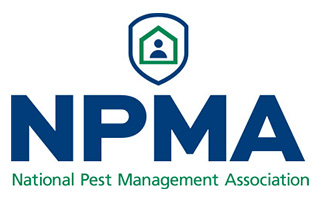HORNETS CONTROL

Hornets are very common pests that you can find flying around your property or creating nests in bushes, trees, attics, sheds, as well as under eaves, decks, and soffits. They show up in the summer to begin building a nest for the growing colony. The most common species of hornets in New Jersey are the bald-faced hornets and the European hornets.
Not sure if you have a hornets problem? Or maybe you want to learn more about how hornets control works. Check out the following information to clarify some questions you may have.
Should I be concerned about hornets?
Hornets are actually not as aggressive as one might think; like most nest-building insects, hornets will usually only attack to defend their colony when they feel it is being threatened. This is mainly only when someone or something comes within close proximity of the nest. Outside of their nest area hornets have been known to be quite passive creatures. They tend to avoid conflict and only attack when they absolutely have to. However; hornets are among the most dangerous of stinging insects because they can sting repeatedly without losing their stingers. Their stingers are also significantly larger than those of most wasps and can be much more painful.
In the best of cases, a hornet sting can result in pain and swelling for 24 hours. Often, though, victims end up with multiple stings. In severe cases, hornet stings can be fatal. Watch out for the symptoms listed below and look for medical assistance if you are experiencing them:
- A red and itchy rash that spreads beyond the stung area
- Swelling face, lips, tongue, and throat
- Difficulty breathing and swallowing
- Rapid heart pulse and arrhythmia
- The drop of the blood pressure
- Dizziness
- Shock
- Unconsciousness
Needless to say, it’s important to distance yourself from hornets because their sting may cause allergic reactions which can send some individuals to the hospital and can be life-threatening.

Signs of a Hornets infestation
It’s important to know if you really are dealing with a hornet nest or if it is some other wasp species. Since stinging insects fly so quickly it can be a little difficult to identify them if you don’t know their features. There are some differentiating factors that can help you determine exactly what you are dealing with.
- Appearance; adult hornets are approximately 1-1.5 inches long, they have two pairs of wings and six legs. When it comes to the color; bald-faced hornets resemble a larger version of a common yellow jacket but they have a whitish-colored facial, thoracic, and abdominal markings; and European hornets have a reddish-brown head, thorax, first abdominal segment, and legs.
- Nest; a hornet nest will be round and usually looks like a large, gray football, located in old sheds, deep in terraces, balconies, attics, and lofts. Hornets are great at building free-hanging nests and attaching them to a nearby object. Yet, their nests aren’t always high up and out of reach; you can also find a hornet’s nest in the ground, they can build their nests in abandoned snake or rodent holes. Hornets’ nests are made of a paper-like substance that comes from saliva and wood pulp, they can grow as large as basketballs, but once a nest is used, the hornets will die off in the winter. On average, 200-400 hornets will live together in any given nest; there can be thousands of hornets in a single nest at any given time. Nest colors can vary depending on the wood they are able to access.
Why do I have Hornets on my property?
The most likely place to find hornets’ nests is on the branches of trees and large outdoor, tree-like shrubs. But, you can also find them near small crevices in home siding, tree bark, and rotten logs. They usually look for areas within a range of food sources like flowers, garbage cans, and road trash. Therefore, homes with protected nooks on outdoor siding and hard-to-reach soffits provide ideal spots for hornets to make nests.

Can I get rid of Hornets myself?
It’s important to remove hornets’ nests quickly as they can become more aggressive as the summer fades. However; trying to kill the hornets or take down the nest on your own using products bought at stores or creating DIY solutions will likely result in stings from large amounts of hornets, which can be dangerous, especially if you are allergic; so it’s not recommended for your safety.
Tips to prevent Hornet’s infestations
There are different things that attract hornets and preventing them will probably protect your home from a hornet issue. Follow the tips listed below in order to prevent hornets:
- Keep your food waste wrapped tightly within the confines of a garbage bag. Heavy-duty garbage bags help you avoid leaks or spillage and act as a barrier between invading pests and waste.
- Clean up around fruit trees. Hornets enjoy feasting on fallen fruits, so if you have a fruit tree make sure to clean up around it.
- Identify any broken panels, gaps in soffits, and crevices and repair them; these are potential dwellings for a potential hornet nest.
- Ensure windows, doors, and screens are all in good condition so that no uninvited creature hangs around. Check your yard and inspect for any rodent holes or potential burrows for hornets to make a home in.
- Limit outdoor water resources. Hornets need water, just like any other living thing. In the drier summer months there usually isn’t a lot of standing water, but take steps to eliminate any areas where it may stand.
- When spending time outside, try to avoid wearing strong fragrances and sweet scents and instead opt for unscented hygienic products.
*The best way to prevent hornets on your property is having regular pest control services that will cut down the other bugs that hornets feed on. Call E&G to get a FREE ESTIMATE on regular pest control services or order services online here.
Want a Free Estimate?
Need to Schedule Service?
Have a Questions?
WHAT WILL WE DO?
Our hornets control process typically consists of the following stages:
- Confirm or discard the existence of hornets in your home through an inspection.
- Identify the factors that may be causing and contributing to the infestation.
- Offer pest control programs to get the problem under control.
What our clients are saying
Our Partners and Awards
Service area
New Jersey:
Ocean County
Essex County
Passaic County
Morris County
Hudson County
Bergen County









